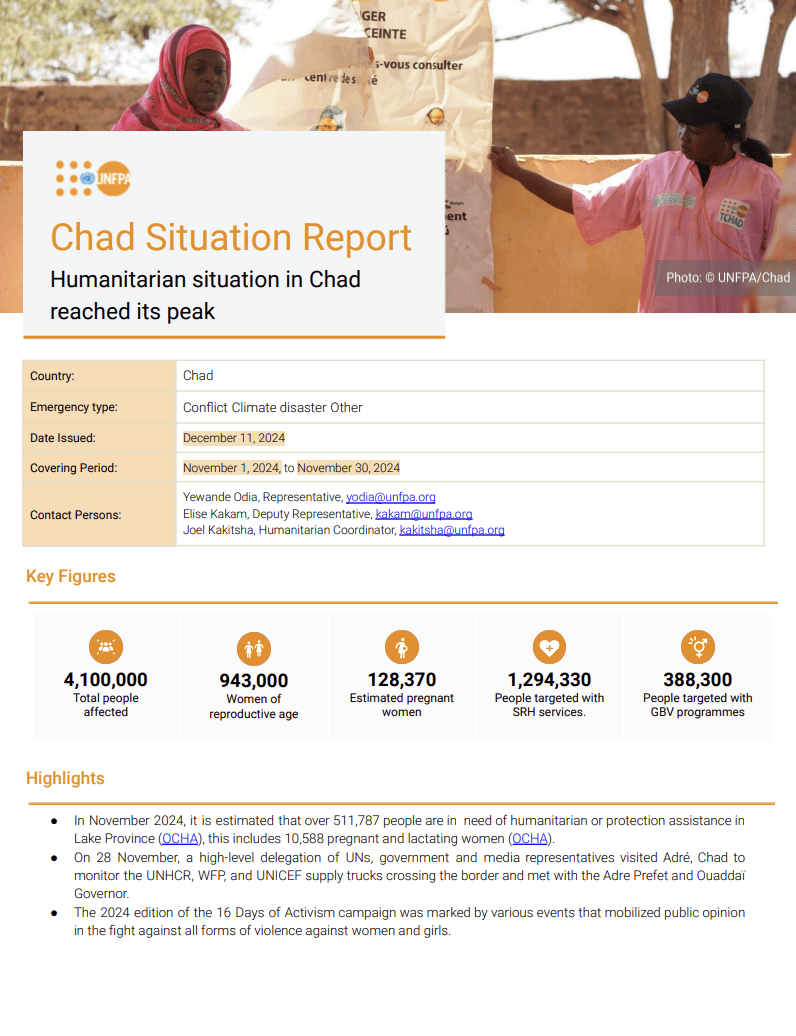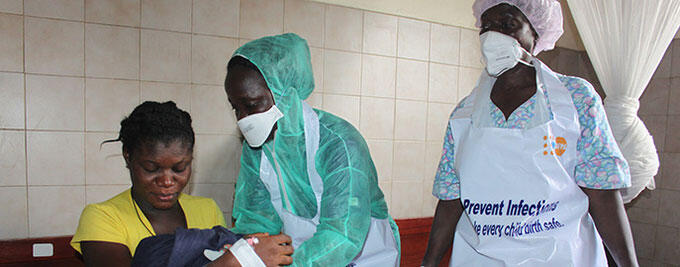
Chad faces a severe humanitarian crisis marked by conflict, flooding, and displacement, particularly in the Lake and Hadjer Hamis provinces. Over 511,787 people, including pregnant and lactating women, require assistance. The influx of Sudanese refugees and returnees has overwhelmed resources, while flooding has displaced nearly two million people, increasing vulnerability to gender-based violence and health risks. Food insecurity and limited access to healthcare exacerbate the crisis, leaving women and girls at heightened risk due to inadequate reproductive health services and protection mechanisms.
UNFPA has responded by prioritizing sexual and reproductive health (SRH) and gender-based violence (GBV) interventions. The organization deployed midwives, distributed Inter-Agency Reproductive Health kits, and established emergency maternity centers and safe spaces for women and girls in flood-affected and refugee areas. Psychosocial support workers were deployed to assist GBV survivors, while awareness campaigns on GBV prevention and the distribution of dignity kits reached thousands. UNFPA has also provided family planning services, maternal health support, and STI treatment to vulnerable populations, collaborating with multiple partners to deliver life-saving services.
Despite these efforts, funding remains a critical challenge. Chad’s 2024 appeal for US$ 21.1 million to support SRH and protection services has only been 41 per cent funded, leaving a US$ 12.5 million shortfall. This funding gap threatens the continuity and expansion of essential services for the affected population, particularly women and girls who are most at risk.



